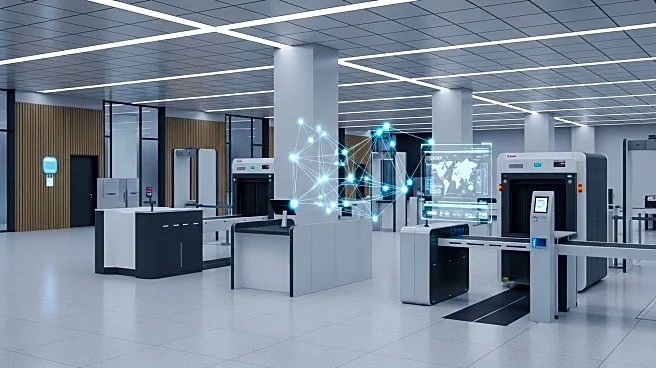What is the story about?
What's Happening?
CLEAR, a private company, has become a significant player in airport security, offering expedited security clearance for travelers willing to pay a fee. This service allows users to bypass standard security lines, raising questions about the coexistence of public and private interests in airport operations. The company's integration into airport security systems highlights the growing trend of privatization in public services, sparking debate over accessibility and fairness in air travel.
Why It's Important?
The rise of CLEAR in airport security underscores the broader trend of privatization in public services, which can impact accessibility and equity. While CLEAR offers convenience for those who can afford it, it may create disparities in the travel experience, potentially disadvantaging those unable to pay for expedited services. This development raises important questions about the balance between efficiency and fairness in public infrastructure, influencing policy discussions on privatization and its implications for society.
What's Next?
As CLEAR continues to expand, airports and policymakers may need to address concerns about equity and access in security processes. Discussions on regulating private services in public spaces could emerge, potentially leading to new policies or guidelines. Stakeholders, including travelers, airport authorities, and government agencies, may engage in dialogue to ensure that security measures remain fair and accessible to all.
Beyond the Headlines
The integration of private companies like CLEAR into public services highlights ethical considerations regarding access and equity. This trend may prompt broader discussions on the role of private entities in public infrastructure, influencing future policy decisions and societal norms around privatization.















